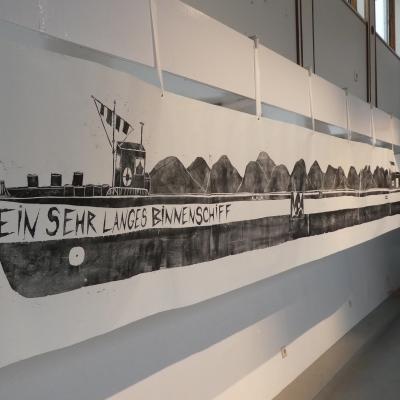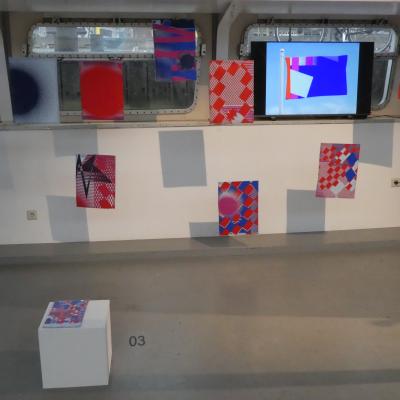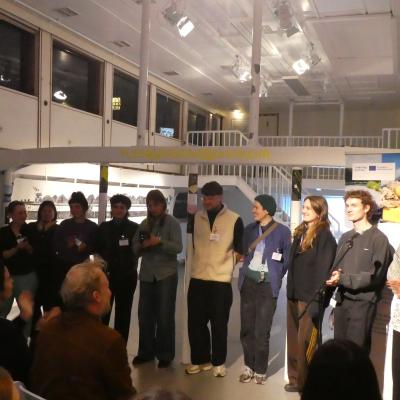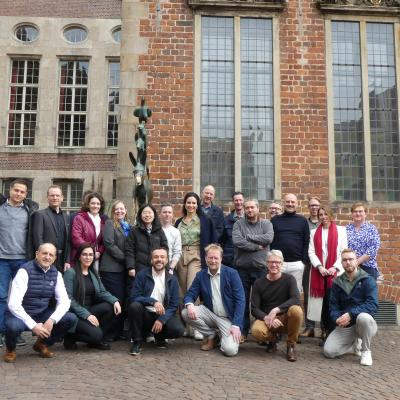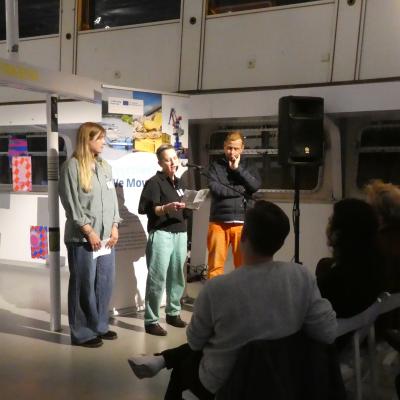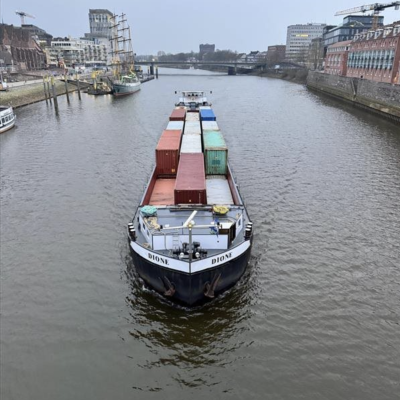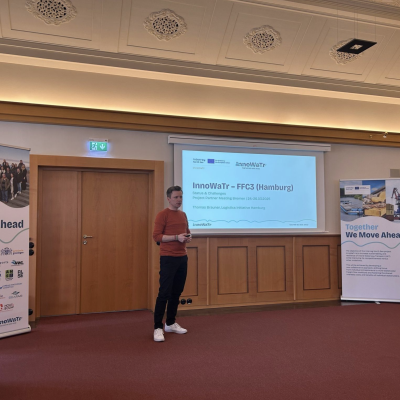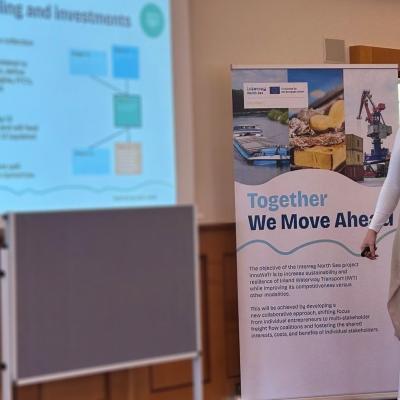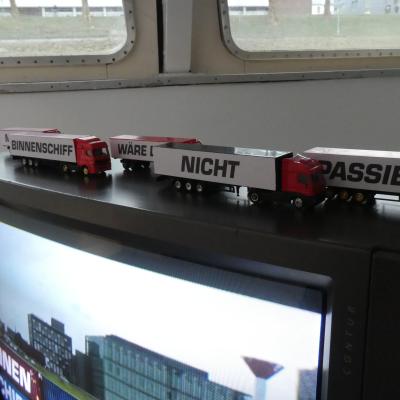From March 24 to 26, 2025, the third partner meeting of the Interreg North Sea project InnoWaTr took place in Bremen (DE). Organized by Maritieme Academie Harlingen in collaboration with Bremenports, the event brought together project partners from across Europe to advance sustainable and resilient Inland Waterway Transport (IWT). Held at the prestigious Industrie-Club Bremen e.V., right in the heart of the city, the meeting provided an excellent platform for collaboration, knowledge exchange, and strategic discussions on freight flow coalitions (FFCs).
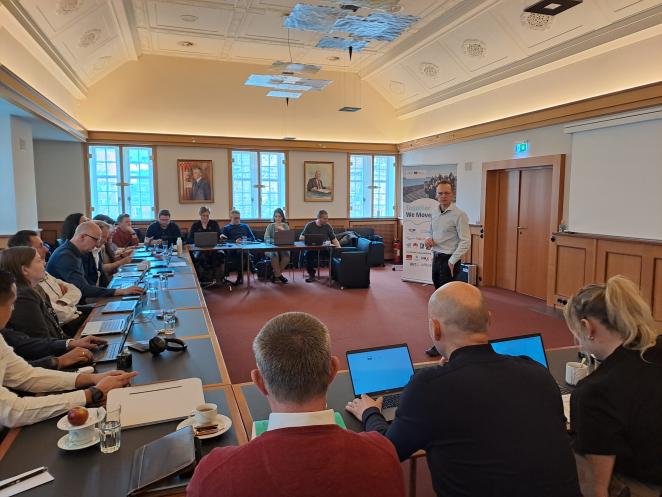
Advancing freight flow coalitions
InnoWaTr aims to shift freight transport from road to inland waterways (IWT) through innovative approaches that enhance sustainability and efficiency.
InnoWaTr sets itself apart with a collective approach to modal shift and sustainability in inland shipping. While other projects primarily focus on innovative technologies, InnoWaTr emphasises collaboration, demonstrating how carefully assembled stakeholder coalitions can share both the burdens and the benefits to accelerate the transition to sustainable inland waterways. Through research and real-world demonstrations, InnoWaTr shows that strategic collaboration is the key to successful greening and modal shift.
Over the past months, regional and transnational pilot projects have been shaping FFCs, designed to strengthen IWT through collaborative, regionally tailored solutions. These initiatives not only serve as models for replication but also demonstrate the economic, environmental, and logistical benefits of inland shipping.
During the first day of the partner meeting, sessions focused on the progress of these coalitions. Participants shared insights, identified challenges, and discussed actionable steps to further develop and implement FFCs. The second day was devoted to the Work Packages (WPs) that form the backbone of the InnoWaTr project. These sessions provided an opportunity to align ongoing tasks, upcoming deliverables, and interregional collaboration. Each WP leader presented their progress, shared lessons learned and outlined the next steps. From developing business cases and logistics models to integrating digital tools and improving infrastructure for IWT, the WPs reflect the multifaceted approach needed to make modal shift a reality. On the third day, the focus was mainly on internal matters related to the steering of the project in general. Some challenging topics were openly discussed, highlighting the trust among the consortium. This, in turn, demonstrated the cohesion of the overarching project goals in terms of collaboration and allows us to look positively towards the future.
Art meets logistics: The ‘Waterways’ Exhibition
A memorable part of the event was the ‘Waterways’ exhibition, a unique collaboration between the Hochschule für Künste Bremen (HfK) and bremenports. On March 25, aboard the MS "Dauerwelle", students from HfK showcased artistic interpretations of inland shipping and its significance. Through a variety of thought-provoking installations and exhibits, the students explored the broader impact of waterways beyond pure logistics.
"Our goal was to encourage a different perspective on inland shipping beyond economic factors," said Lars Stemmler, International Projects Lead at bremenports. "The students' creative interpretations provided fresh insights, challenging us to rethink the role of waterways in our daily lives."
Robert Howe, Managing Director of bremenports, echoed this sentiment in his welcome address: "Innovation in freight transport is not only about technology; creativity plays a crucial role. This exhibition is a successful fusion of artistic expression and logistical expertise, highlighting the broader importance of sustainable inland shipping."
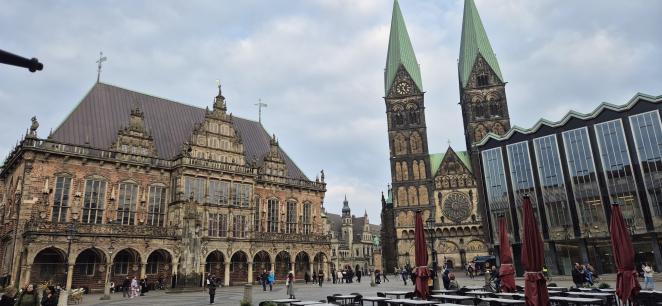
Moving forward together
Beyond the formal discussions and exhibition, the meeting also provided opportunities for networking, informal exchanges, and experiencing the cultural charm of Bremen:
This multi-day meeting was more than just sharing tasks and goals – it was a dynamic and enthusiastic collaboration! How do we engage governments, find the right stakeholders, and connect national data sources internationally?
European projects often involve long meetings and presentations, but just as important is breaking down cultural barriers, sharing knowledge across borders, and forging lasting connections. This workshop perfectly demonstrated the added value of transnational collaboration, where different national persepctives and experiences enrich the process and lead to innovative solutions that wouldn’t be possible in isolation.
No tired faces at the end—just energised participants, confident that together, we’re making a real impact! Partners left the event with a strengthened sense of collaboration and a clearer vision for the next steps in the project.
As InnoWaTr progresses, the insights gained from this meeting will help shape concrete strategies to promote and enhance inland waterway transport. By combining expertise, research, and creative approaches, the project continues to drive meaningful change in sustainable logistics.
